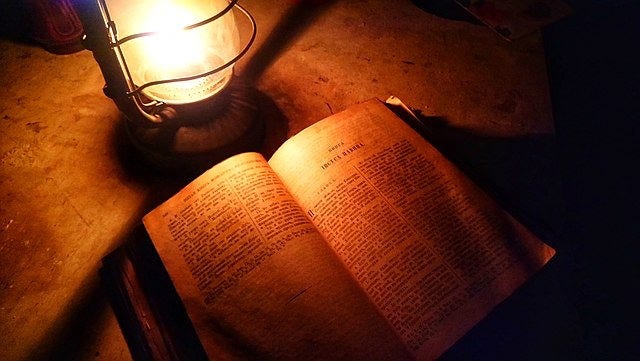Numbers 25
"Baal" is first mentioned in Numbers 22:41: "On the next day Balak took Balaam and brought him up to Bamoth-baal, and from there he could see part of the people of Israel."
Bamoth-baal sounds like a location. "Baal of Peor" in Numbers 25 sounds like a deity, or perhaps the plural name of the gods of the Midianites. The YLT says "the people begin to go a-whoring unto daughters of Moab" whereas the NRSV says, perhaps more timidly, "the people began to have sexual relations with the women of Moab."
It sounds like Israel was lured into a sex cult. Israelites were invited to "the sacrifices of their gods, and the people ate and bowed down to their gods."
How sincere was the worship of these gods? Or were the Israelites just there for the sex? It's unclear, but also wouldn't make much difference. What the Israelites were really sacrificing was their spiritual essence for temporary bodily pleasure.
This story suggests the temptation to lose oneself in sensuality has to be nipped in the bud. The chapter is unclear early on that the LORD had sent a plague to Israel, but by killing an Israelite leader and his Midianite princess, the plague was put to an end.
I think the chapter means, symbolically, that the mind or spirit must be vigilant in keeping command over the flesh. The body can succumb to temptations that, if nothing else, can spread disease. The yearning for bodily pleasure can compromise one's values, represented here as "the LORD."
The subduing of the "base self" by the "higher self" is the subtext of this saga.





No comments:
Post a Comment